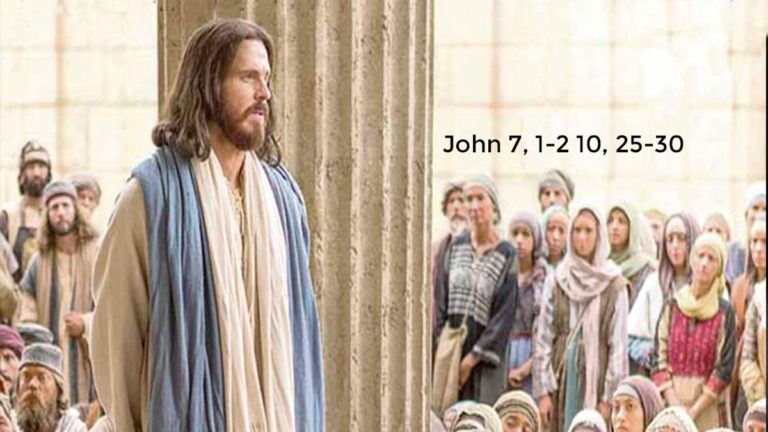We are quite familiar with the saying: “good things/people do not last long”, obviously because of the day-to-day experiences of the persecution of the good man at the hands of the wicked in the society. This situation finds itself in our liturgical readings, today.
The First Reading from the Book of Wisdom (cf. Wis. 2:1,12-22) mirrors the experiences of Christ in the Gospel (cf. John 7:1-2,10,25-30). In both cases, there was a plot to condemn a righteous man to a shameful death, because of the fact that he is good. Put differently, the just men in both readings were faced with an experience of hostility/persecution from the wicked. The question that readily comes to mind is: Why do bad things happen to good people? Why does God permit this kind of evil? The question, how can a good God allow a good man to suffer unjustly, reveals several fallacies in our thinking. Considering one of the many fallacies, we see the assumption that suffering is always evil and therefore irreconcilable with God’s goodness. St. Augustine is quoted for saying that “God would not allow any evil in his works, unless in His omnipotence and goodness, as the Supreme Good, He is able to bring forth good out of evil” (cf. On Faith, Hope, and Love). The best example of this was how God took the suffering of His beloved Son (our Lord Jesus Christ) on Good Friday and brought forth the Resurrection of Easter Sunday. Therefore, about those who plotted evil in the First Reading, the Word of God says, “They do not know the hidden things of God, they have no hope that holiness will be rewarded, they can see no reward for blameless souls.” Similarly, the persecution of Jesus in the Gospels (greatest of all moral evils) paved way for man’s redemption, the ‘ultimate good’.
Dear friends in Christ, today’s Readings strengthens us to continually trust in God’s ability to draw good from the evil that befalls us. Even in a world threatened by the evil of COVID-19, we see that a lot of people have seen the need to remember and acknowledge the place and supremacy of God; many people now pray harder and draw closer to God, asking God for his mercy and intervention – this is indeed the good of souls. Above all, we must not forget that God is so close to us at this critical time. Therefore, we must continue to hope, trust, and depend on God in putting an end to this pandemic threatening our world, relying on the Word of God in today’s Psalm [cf. Ps. 33(34):16,18,19-21,23] “The Lord is close to the broken-hearted; those whose spirit is crushed he will save. Many are the trials of the just man but from them all the Lord will rescue him.
Shalom!
Paroquia Nossa Senhora de Fatima, Vila Sabrina, São Paulo, Brazil
nozickcjoe@gmail.com / fadacjay@gmail.com


